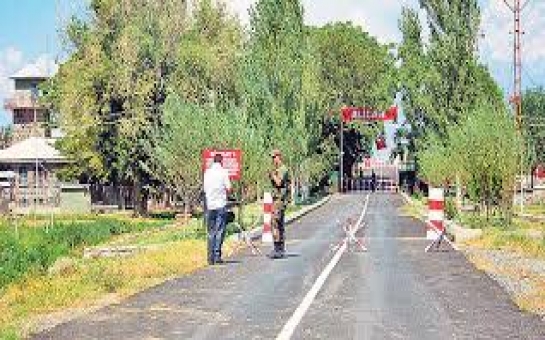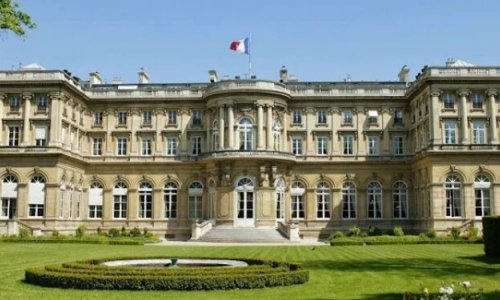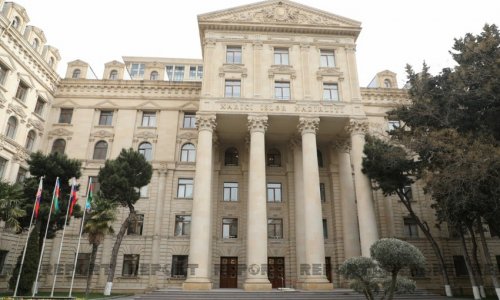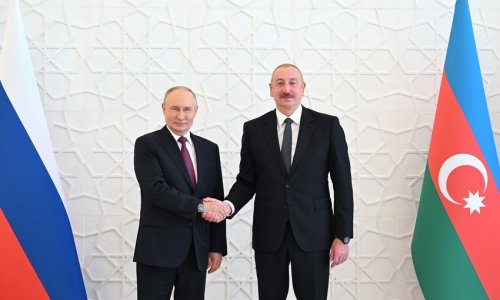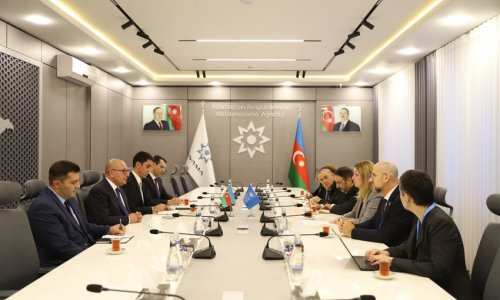The Turkish government is preparing to open the Alican border gate with Armenia, possibly in September of this year, as part of its efforts to normalize ties with the neighboring country, the Taraf daily reported on Friday.
Turkey closed its border with Armenia in 1993 in solidarity with Azerbaijan after Armenian-backed armed forces occupied 20 percent of Azerbaijan in 1992, including the Nagorno-Karabakh region. According to Taraf, opening the border with Armenia will be the second step on the way to normalizing Turkish-Armenian relations, following Prime Minister Recep Tayyip Erdoğan's April 23 statement extending condolences to the grandchildren of Armenians who were killed in 1915. Erdoğan's surprising statement came just one day before April 24, when Armenians commemorate the events they describe as genocide.
Ankara's policy is that the 1915 events do not amount to genocide, and Turkey argues that both Turks and Armenians were killed when Armenians revolted against the Ottoman Empire during World War l in collaboration with the Russian army, which was then invading eastern Anatolia.
Erdoğan's Justice and Development Party (AK Party) has been looking ways to improve relations with Armenia before the year 2015 -- the 100th anniversary of the “Armenian Genocide.” According to Taraf, the Erdoğan government is preparing to open the border gate as part of a move to try to anticipate the expected campaign for recognition of the “genocide” by Armenians.
The daily also reported that the Highways General Directorate has asphalted seven kilometers of road leading to the Alican border. The official opening timing has not yet been determined, but Taraf reports that the gate may well be open in September of this year.
Ankara is aiming to improve problematic areas in its foreign policy this year in the hope of reducing Western criticism -- particularly from the US -- regarding issues of democracy and freedom in Turkey. Improving ties with Armenia is one of these steps, along with resuming the negotiations in Cyprus and normalizing ties with Israel.
A Turkish Foreign Ministry official who spoke to Today's Zaman on Friday on condition of anonymity said the report is baseless, but chose not to elaborate further.
Attending a reception on April 23 after he issued his condolences, Erdoğan said that without a solution to some issues, such as the Nagorno-Karabakh dispute, Turkey will not consider opening the border. The status of Nagorno-Karabakh -- a disputed enclave overwhelmingly populated by ethnic Armenians -- and seven adjacent provinces is a seemingly intractable problem in the South Caucasus. Diplomatic efforts to find a lasting solution to the conflict have failed for the past 20 years, after Armenia occupied 20 percent of Azerbaijani territory in the early 1990s, including Nagorno-Karabakh, Turkey closed its border with Armenia in 1993 in solidarity with Azerbaijan. The issue of Armenia's withdrawal from the area surrounding Nagorno-Karabakh is of importance to Ankara, which has frequently signaled that this step would ease the way for the reopening of the border with Armenia.
Speaking to journalists at the same reception, Foreign Minister Ahmet Davutoğlu said the prime minister's statement was not issued under pressure from anyone and that it should be seen as a “call” to Armenians. Stressing that Turkey is attempting to share the pain of Armenians, Davutoğlu expressed his hope that Armenians would respond positively to the prime minister's call so that Turks and Armenians can build a future and make history together.
(Today's Zaman)
Bakudaily.az

